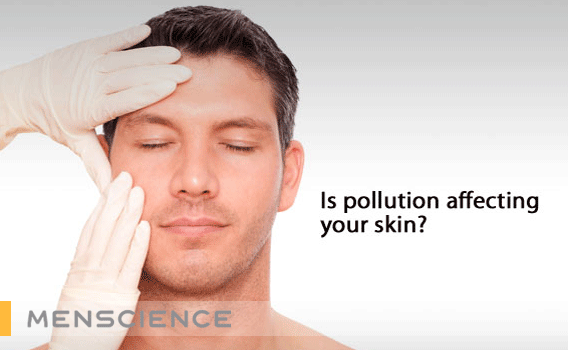Besides melting icebergs and endangering polar bears, pollution and ozone depletion are stripping your youth away – but don’t worry, we can help.
How does pollution harm skin? “Free radicals,” or unstable oxygen molecules, impede healthy skin cell functioning and deplete collagen stores. Collagen is the fibrous protein mesh that gives skin its elasticity, tensile strength and youthful resiliency. When deprived of it, your face crumbles – skin slackens as age lines and wrinkles appear.
Antioxidants are scientifically proven to prevent and protect against free radical damage. To help repair aging skin from free radical damage, consider using an anti-aging cream with antioxidants and complementing it with an antioxidant nutritional supplement. Containing some of the most powerful antioxidants in existence, the MenScience Anti-Aging Formula helps neutralize free radical damage to diminish the visible signs of aging and improve overall skin quality.
Airborne microscopic pollutants can also clog your pores, which can affect both your skin’s health and its appearance. To remove the pollutants and impurities that accumulate on skin throughout the day, use a gentle daily cleanser with glycolic and salicylic acid. Another excellent option is to use an exfoliating tonic as it can clear pores of environmental pollutants while removing dead skin cells and organic debris.
Caused by exposure to UVA or UVB (ultraviolet) light, photo aging is the primary reason skin ages. Photo aging processes include abnormal elastin regrowth, which is responsible for age lines, wrinkles and sun spots. Aptly named, elastin allows bodily tissues to resume their shape after stretching or contracting.
To protect against sun damage, regularly wear an SPF 30 sunblock that shields skin from both UVA and UVB rays. Sunblocks fortified with full-spectrum sunscreen ingredients (such as titanium dioxide) repel ultraviolet rays and deflect heat without irritating skin. Don’t forget your lips, they’re also affected by photoaging, so be sure to use a lip balm with an SPF of 15 or higher.







